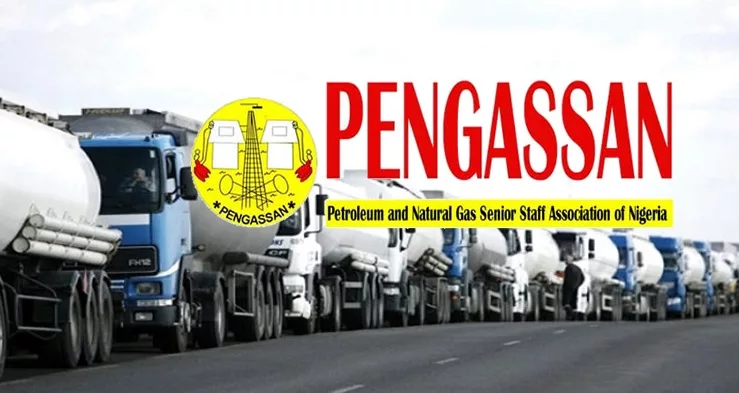The Petroleum and Natural Gas Senior Staff Association of Nigeria (PENGASSAN) has denied signing the communiqué that reportedly ended its recent nationwide strike over its dispute with Dangote Refinery, insisting that its core concerns remained unresolved.
The strike, which disrupted operations across the oil and gas sector, was allegedly suspended on Wednesday after government’s intervention. However, PENGASSAN President, Festus Osifo, clarified that the document presented during the Abuja meeting was not a binding agreement.
“If you see that communiqué, we did not sign it. Normally, it is supposed to be signed by three parties. We did not sign because we felt that some things in it were not okay with us,” Osifo said on Channels Television’s ‘The Morning Brief’ on Thursday.
According to him, the statement released after the talks was merely a communication from the Minister of Labour and Employment, Mohammed Dingyadi, who served as chief conciliator.
Osifo stressed that PENGASSAN’s focus was not union dues, as some reports suggested, but the reinstatement of sacked workers.
“When we subjected it to our NEC, we had to decide on priorities. Some media houses claimed we were only interested in check-up dues. That is false. What we prioritised was how our members would return to work and provide for their families,” he said.
The union leader maintained that PENGASSAN’s position was clear: “Take the people back to the refinery.”
He added that Dangote Refinery initially resisted reabsorbing the disengaged staff until government pressure forced a compromise.
Dangote management had earlier accused the disengaged workers of attempting to sabotage refinery operations. Osifo dismissed the allegation as damaging and unfounded.
“The release that Dangote made on workers sabotaging the economy was totally incorrect. If we had allowed that sabotage tag to stand, those 800 people would not be able to secure jobs in the future. That stigma would remain forever,” he lamented.
He insisted that the union’s fight was not about itself but about protecting Nigerian workers from unfair treatment.
“If Dangote does not do the needful, our tools are always available. We will never get tired of struggling for what is right. We have been around for 50 years before the Dangote Refinery came on stream,” he declared.
LEADERSHIP reports that on Wednesday, Labour Minister Mohammed Dingyadi confirmed that both sides had reached a compromise. He said over 800 disengaged workers would be redeployed to Dangote Group subsidiaries without loss of pay.
“Unionisation is a legal right of workers,” the minister stated. “No worker will be victimised for participating in the dispute.”
The decision to suspend the strike also followed meetings with the National Security Adviser and Dangote management.
Osifo admitted there were still “grey areas” in the resolutions but said the union acted in good faith. He warned that the strike could resume without notice if Dangote failed to honour the commitments.
Before the suspension, PENGASSAN members barricaded the Nigerian National Petroleum Company Limited (NNPC) headquarters in Abuja and blocked entrances to regulatory agencies while chanting solidarity songs.
Recall that the union had accused Dangote Refinery of illegally sacking more than 800 Nigerians and replacing them with “over 2,000 Indians.”
The Trade Union Congress (TUC) threw its weight behind PENGASSAN. Its Secretary-General, Nuhu Toro, said, “We stand in full solidarity with the affected workers. No corporation will be allowed to trample on workers’ rights.”
Meanwhile, the National Industrial Court in Abuja had earlier issued a seven-day interim injunction restraining PENGASSAN from continuing the strike. Justice Emmanuel Subilim warned that prolonged disruption could cause irreparable damage and fixed October 13 for further hearing.
Dangote Refinery, commissioned in May 2023, denied wrongdoing, insisting that its restructuring was necessary for “safety and efficiency.”
The company argued that only a fraction of its 3,000 Nigerian workers were affected and faulted PENGASSAN’s tactics.
“No law grants PENGASSAN the right to cut off supplies,” it said in a statement, cautioning that disruption could harm fuel supply and national revenues.
While the government and management describe the outcome as a compromise, PENGASSAN maintains that it remains on alert.






